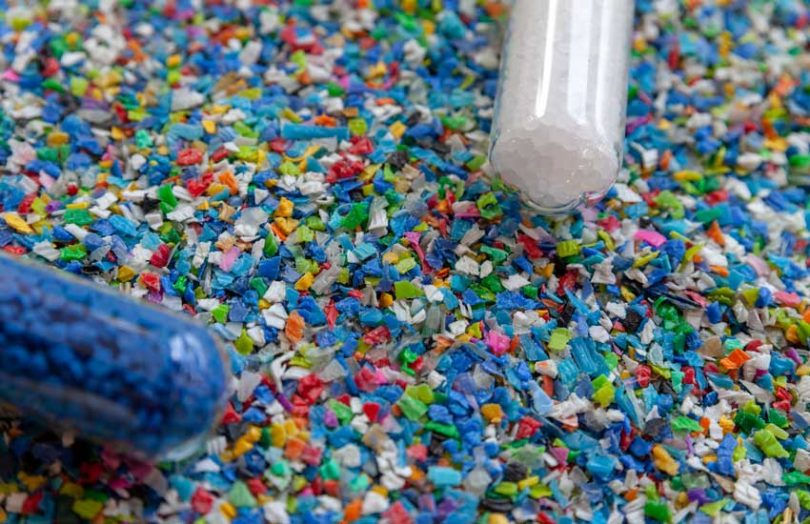German plastics companies DOMO and Covestro are piloting a blockchain solution with Dutch startup Circularise for plastic traceability and enabling a circular economy. The companies first started working together back in October 2019 and demonstrated the blockchain platform at CES 2020.
The blockchain platform creates a digital version of plastic materials based on audited documents and enables end-to-end traceability and provenance. The goal is to track plastics from production to molders to OEMs and brand owners.
In the first step of the process, the plastics resin’s certificates and audit reports will be recorded by the blockchain. In the next stage where a product is molded, the solution will track what additives are used and file the ‘bill of materials’. Lastly, a brand owner will be able to prove the provenance details of the manufactured plastic used in the final product.
Throughout the supply chain, the solution uses identifiers such as QR, RFIDs, NFC, chemical tracers, and DNA to track the plastic.
DOMO Chemicals is a polyamide supplier, while Covestro, with revenues of €14.6 billion ($16 billion), manufactures polymer materials. The two formed a consortium with Circularise to launch the Circularise PLASTICS initiative.
“The value of having this standard developed by the industry, instead of just one or two companies is in avoiding a central powerful authority and giving equal rights to all participants,” said Thomas Nuyts, Director of Global Product Management at DOMO.
Startup Circularise is leveraging blockchain to enable transparency and communication amongst industry partners to enable a circular economy. One aspect of its solution is its Smart Questioning technology, which uses Zero Knowledge Proofs to allow communication without sharing data, identity, or position in the supply chain. For example, someone can ask the probability of whether or not a product contains mercury without discovering all the suppliers in the chain.
Circularise presented the plastic traceability solution to BASF and Stanley Black & Decker as part of their Circularity Challenge. The company was the only software firm to make it to the final stage among 100 other competitors.
“For OEMs and brand owners, it helps on the road to achieving sustainability targets and a strengthened brand position, by revealing a product’s origin and transparency on its environmental impact,” said Burkhard Zimmermann, Head of Strategy, Sustainability and Digital, Covestro Polycarbonates.
Earlier this year, BASF unveiled its reciChain blockchain pilot project for recycling plastics.
Meanwhile, Dell Technologies and its subsidiary VMware have developed a track and trace solution for recycled packaging material.






